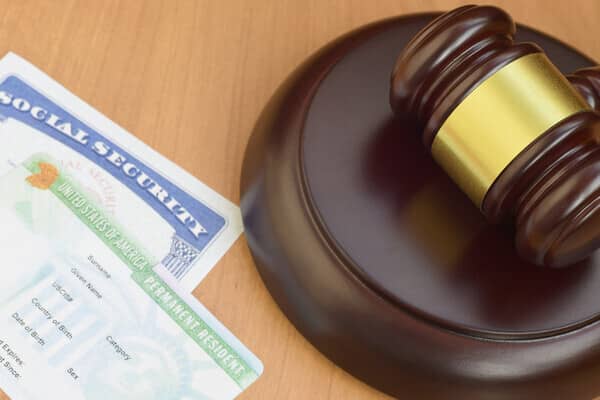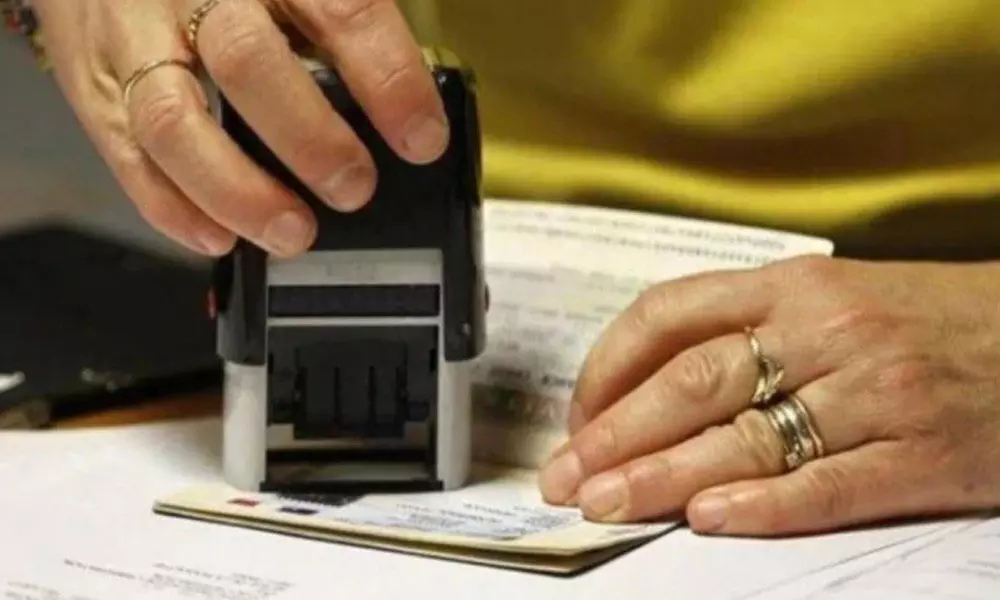Obtaining a green card is a significant milestone, but for conditional residents, it’s only the beginning. Those granted conditional permanent residency through marriage must file Form I-751 to remove conditions and secure their permanent status. This process can feel overwhelming, as it requires gathering evidence, meeting strict deadlines, and navigating potential legal challenges.
Legal support can make a world of difference when filing Form I-751. From ensuring accurate documentation to addressing complex situations like divorce or insufficient evidence, experienced guidance helps streamline the process and reduces the risk of delays or denials. Understanding the importance of professional assistance is key to achieving a successful outcome.
Understanding the Need for Removing Conditions on Green Cards
Conditional residency, granted through marriage to a U.S. citizen or permanent resident, requires compliance with specific requirements to secure full permanent residency. The two-year conditional status aims to ensure the marriage is genuine and not solely for immigration benefits. Form I-751, Petition to Remove Conditions on Residence, must be filed within the 90-day window before the conditional green card’s expiration date.
Failure to remove conditions results in termination of conditional status, potentially initiating removal proceedings. Timely submission of Form I-751, coupled with adequate supporting evidence like joint financial records or lease agreements, substantiates the legitimacy of the marital relationship.
Legal guidance plays a critical role in this process. Skilled attorneys provide strategic advice, ensuring the proper preparation and submission of documentation. Although i-751 lawyer fees may vary, the expertise they provide often prevents unnecessary delays or denials. Prospective applicants can research resources, including law firm websites, to explore options for reliable legal help.
Steps to File Form I-751 Effectively

- Timely Submission Within the 90-Day Window
File Form I-751 during the 90 days before the expiration of the conditional green card. Late submissions risk removal proceedings unless an eligible exception applies. - Complete the Form Accurately
Provide precise answers for all required sections, focusing on marital history and current residence. Incomplete or incorrect information can result in processing delays or rejections. - Gather Strong Supporting Documentation
Attach evidence proving the authenticity of the marriage. Examples include joint bank statements, tax returns, photos together, and shared lease agreements. - Include All Required Fees
Pay the form’s filing and biometric fees as specified by USCIS. Visit the USCIS website for accurate fee details or consult an attorney if seeking clarity on associated costs. - Secure Legal Support for Complicated Cases
Seek guidance from immigration attorneys when facing challenges like divorce, abuse, or insufficient evidence. Contacting an experienced I-751 lawyer helps prepare a solid case and minimizes risk. - Monitor USCIS Updates
Stay informed about policy changes or updated requirements posted on the official USCIS website. Adjust submissions accordingly to maintain compliance. - Respond to USCIS Requests Promptly
Address Requests for Evidence (RFEs) or Notices of Intent to Deny (NOIDs) within the USCIS-established timeframe. A delayed or incomplete response reduces the chances of approval.
How Attorneys Address Evidence Requirements for Conditional Residency
Attorneys focus on ensuring that evidence submitted with Form I-751 directly supports the legitimacy of the marital relationship. They evaluate the strength of the evidence, such as joint tax returns, shared bank statements, or utility bills, prioritizing documents that demonstrate shared financial responsibilities and cohabitation.
When clients lack sufficient documentation, attorneys help gather alternative forms of proof. This includes affidavits from friends or family, photographs of significant life events, and correspondence addressed to both spouses at the same address. They tailor evidence strategies to the specific circumstances of each case, addressing gaps or inconsistencies to preempt potential USCIS concerns.
Attorneys also prepare clients for USCIS interviews. They guide them on potential questions, ensuring that answers align with the submitted documentation. In cases where Requests for Evidence (RFEs) or Notices of Intent to Deny (NOIDs) are issued, experienced attorneys respond with timely, robust evidence packages to resolve discrepancies.
Legal professionals often assist in cases involving exemptions, such as when the marriage ends in divorce or when abuse occurs. They ensure that waiver petitions are backed by compelling documentation, including legal records and medical or psychological reports, where applicable. Clients facing such complexities benefit significantly from expert advice during this process.
Law firms streamline client preparation by utilizing online tools or providing document checklists via their Website. These resources, combined with transparent information about services and estimated I-751 lawyer fees, equip applicants to better understand their options and improve case outcomes.
Preparing for Potential USCIS Requests or Interviews
USCIS may schedule interviews or issue requests to clarify or verify information submitted with Form I-751. Preparing for these scenarios strengthens an applicant’s case and ensures compliance with USCIS requirements.
Responding to USCIS Requests
Applicants need to respond to Requests for Evidence (RFEs) or Notices of Intent to Deny (NOIDs) with clear, well-organized documentation. Legal professionals help assemble evidence that addresses USCIS concerns, such as additional financial records, affidavits, or proof of a shared residence. Missing deadlines for responses risks case denial or additional processing delays.
Preparing for Interviews
USCIS interviews are scheduled to assess the validity of the marital relationship. Applicants should present original documents, provide consistent information, and address USCIS officer questions clearly. Attorneys often conduct mock interviews to prepare clients for questioning and identify potential issues. These sessions help ensure applicants appear confident and credible.
Legal Guidance and Resources
An experienced attorney can guide applicants through complex scenarios, such as those involving RFEs, NOIDs, or interviews. Individuals researching law firms can look for transparent information about services, including details like i-751 lawyer fees, through the firm’s website. Access to legal support optimizes document preparation, timelines, and interview readiness.
Avoiding Delays in Processing Removal of Conditions Applications
Timely preparation and accurate filing of Form I-751 are essential to minimize processing delays. Late submissions or incomplete forms extend processing times and increase the risk of status complications. Submitting Form I-751 within the 90-day window before the two-year conditional residency expires ensures compliance with USCIS deadlines. Including complete, well-organized supporting documentation, such as joint financial accounts and lease agreements, prevents unnecessary Requests for Evidence (RFEs).
Efficient communication with USCIS accelerates the resolution of issues. Applicants must promptly respond to RFEs or Notices of Intent to Deny (NOIDs) by providing requested evidence in the format specified. For cases involving additional complexities, such as divorce or abuse waivers, attorneys help address USCIS concerns by submitting robust evidence packages tailored to the specific situation.
Experienced legal professionals prevent bureaucratic delays by ensuring forms are properly completed and supporting documents meet USCIS standards. Exploring resources on a law firm’s website provides insight into options for legal assistance, including an explanation of the i 751 lawyer fee structure. Prepared applicants reduce the likelihood of interviews and RFEs, resulting in smoother case processing overall.
Ensuring a Seamless Transition to Permanent Residency
Securing permanent residency through Form I-751 requires careful planning, timely action, and strong supporting evidence. Navigating this process can be complex, but with the right legal guidance, applicants can significantly reduce the risk of delays or denials.
Experienced attorneys provide invaluable support by ensuring documentation meets USCIS standards, addressing challenges like RFEs or NOIDs, and preparing clients for interviews. Leveraging their expertise helps applicants build a compelling case and stay compliant with USCIS requirements.
By prioritizing accuracy, organization, and professional assistance, individuals can streamline their path to permanent residency and achieve a successful outcome.






